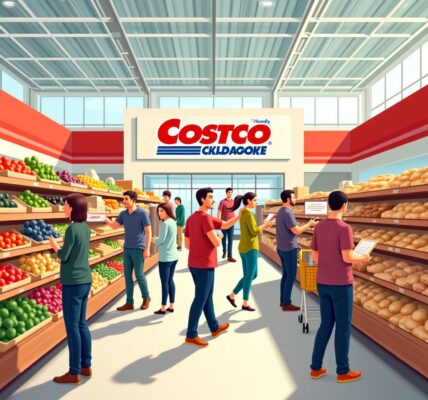Kroger’s Legal Challenges and Major Moves in the Grocery Sector
In the bustling world of food retail, Kroger has recently attracted significant attention, largely due to its ongoing legal battles and notable business strategies. U.S. Senators Elizabeth Warren and Robert P. Casey, Jr. expressed concerns about Kroger’s use of electronic shelf labels, which they argue could enable dynamic pricing that burdens consumers. In their letter to Kroger’s CEO Rodney McMullen, they highlighted risks regarding sensitive consumer data linked to these digital price tags. Kroger, however, defends its approach as shopper-friendly, asserting that the technology is aimed at lowering prices where consumers need it most.
Simultaneously, Kroger is navigating the Federal Trade Commission’s efforts to thwart its proposed $24.6 billion merger with Albertsons. The FTC argues for a preliminary injunction, yet Kroger contends that it requires the merger to remain competitive against global giants. The company has doubled its previous price-cut proposals to alleviate economic pressures, indicating a calculated effort to strengthen its market position.
In other grocery news, Mars, Inc. confirmed its intentions to acquire Kellanova for $35.9 billion, marking the largest consumer packaged goods transaction since Kraft merged with H.J. Heinz in 2015. This deal signals a growing trend in the snacks and cereals sector.
While some chains encounter challenges, Trader Joe’s faces internal friction. Recent developments show unionized employees at a Massachusetts store seeking an election to disband their union, citing dissatisfaction with union leadership.
Emerging trends, such as the gamification of grocery shopping, also present new avenues for industry growth. With a significant portion of consumers influenced by video games in their purchasing decisions, grocers may need to explore innovative promotional strategies.
As Target and Sprouts continue to expand with new store openings, the grocery landscape appears poised for evolution, driven by competitive pressures and consumer preferences. Retailers must remain vigilant, adapting to both legal challenges and new consumer trends to thrive in this dynamic market.










